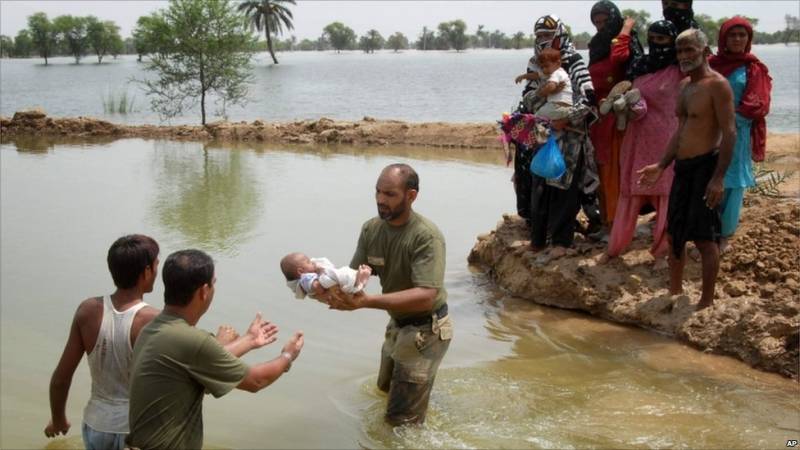Over the past few years, natural disasters have increased significantly worldwide. Ninety percent of these disasters were in lower income countries, inexplicably affecting people who are living their lives in poverty. Pakistan has also faced many disasters in the past few years. The country suffered severe floods in the years 1950, 1956, 1957, 1973, 1976, 1978, 1988, 1992, 2010, 2011 and 2012. These floods affected the river basins in Punjab and Sindh, affecting Khyber Pakhtunkhwa (KP), Balochistan, Federally Administrated Tribal Areas (FATA), Gilgit Baltistan(G-B), Azad Jammu and Kashmir(AJK) and Punjab. Pakistan suffered the worst flood of its history in the monsoon season of 2010. As per Damage Need Assessment (DNA) report of ADB/World Bank, the floods of that season affected an area of about 160,000 km2 (one fifth of the country), claiming about 1,985 lives. Around 1.5 million houses were damaged, cropped area of more than 17 million acres was wiped out and a population of about 20 million was displaced resulting in the economic loss of US $ 10 Billion.
Current emission reduction commitments are far short of what science tells us is necessary to deal with climate change. We are likely to miss the critical 2°C threshold, putting the planet on a 4 to 6°C pathway to global warming. This anthropogenic global warming will lead to a devastating loss of and damage to land, property, ecosystems and human life. Especially the lives and livelihoods of poor – most vulnerable and least to blame – are at great risk.
Slow onset events such as temperature and sea level rises, ocean acidification, glacial retreat, land and forest degradation, loss of biodiversity and desertification will cause unavoidable loss and damage, affecting millions in Pakistan and other developing countries. Yet loss and damage from climate impacts gets far less attention than it deserves from policy makers. Loss and damage to property, territory, lives and livelihoods are effects that would not have happened without climate change, which have not been mitigated, and which cannot be or have not been adapted to. Little has been said about the 'residual' damage that is likely to remain even after mitigation and adaptation and how developing countries will be compensated for the impact of climate change. Loss and damage can be minimised through more ambitious reduction of GHG emissions, more effective climate change adaptation and better disaster risk management. Countries or may be the big companies that contributed excessively to global warming have a ethical obligation to transfer financial resources for adaptation and disaster management to vulnerable countries.
A comprehensive international mechanism is required to address both avoidable and unavoidable loss and damage. Such compensation and rehabilitation mechanism needs to be developed in line with decisions made in Doha, Qatar in 2013. While the 2015 agreement in Paris will focus on post-2020 climate action, countries also have another opportunity to take pre-2020 action as on June 1st, governments began another round of climate negotiations. The the June session of the Ad Hoc Working Group on the Durban Platform for Enhanced Action (ADP2-9) is scheduled to take place between 1st and 11th June 2015 in Bonn, Germany is very important for developing nations. Apart from discussing the international mechanism of loss and damage, the ministers of developing countries need to assess how to deal with the currently undervalued elements of adaptation and climate risk inside the agreement. Decision makers from the developed nations need to re-evaluate existing approaches and massively scale up resources to address vulnerability, building resilience and capacity to adapt, especially of the most vulnerable people, communities and ecosystems.
Rich countries need to significantly decrease their emissions so that developing countries have scope to grow their economies without destroying the planet. It’s time now for the developed world to provide financial and technological assistance to poor developing countries to reduce emissions, adapt efficiently to climate change, compensate communities for loss and damages and plan low-emission pathways out of poverty. Because of past inaction and the sheer severity of the problem, the response must now be not only to immediately and drastically cut emissions, support countries most affected to build their resilience and adapt, but also to address and redress the permanent loss and damage from climate change that is resulting from insufficient mitigation ambition to comprehensively tackle the problem.






